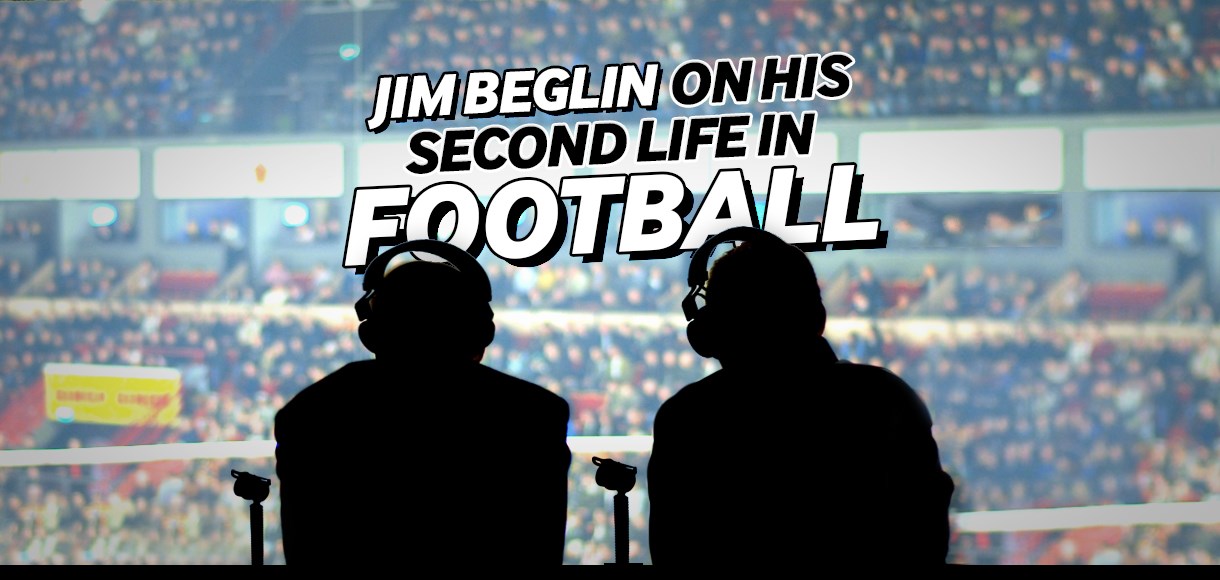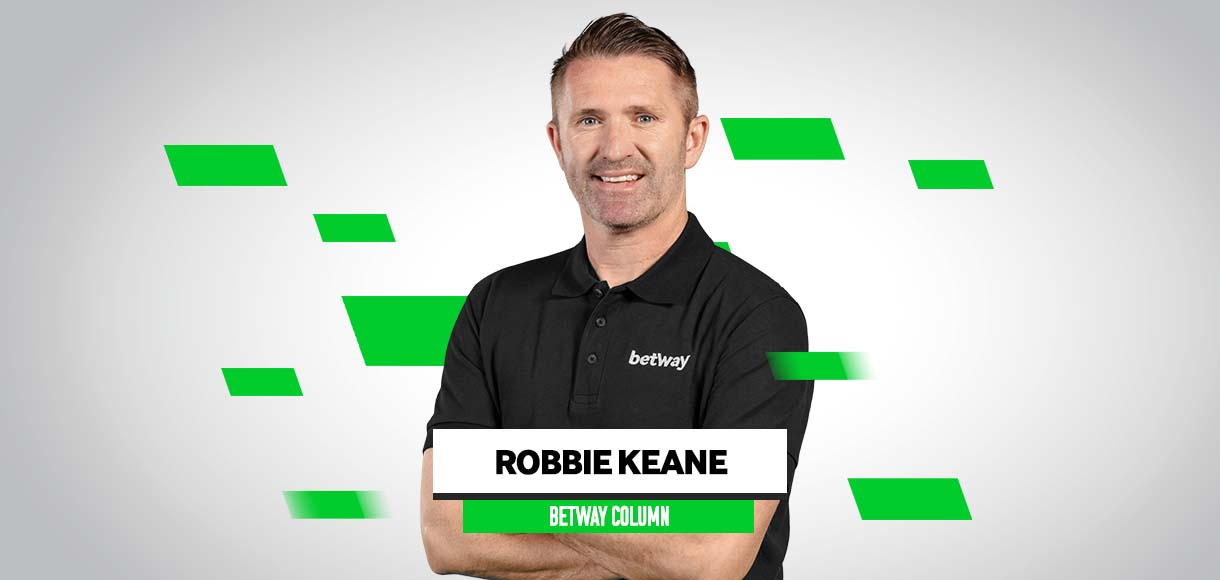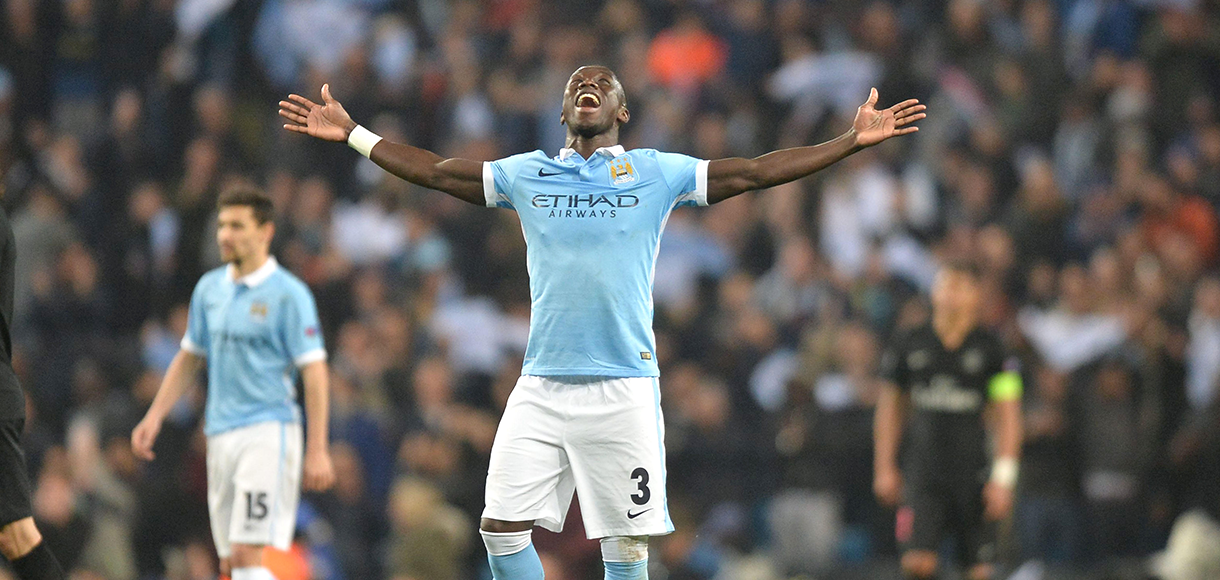Jim Beglin: I know I'm lucky to have had a second life in football

From starting a European Cup final for Liverpool to commentating on one, Jim Beglin has reshaped his career to become one of television's most established broadcasters.
When he broke his leg playing for Liverpool in a League Cup game against Everton in January 1987, Jim Beglin had no idea of the career that would come calling.
Beglin, who started the 1985 European Cup final, is now one of the most recognisable and respected broadcasters in the business, having commentated on every big match in football, for ITV and others, over the course of his 20-year-career.
He will travel to Madrid for this season's final, which Liverpool are favourites to win in the Champions League betting.
Back then, though, he was a Republic of Ireland international who, having completed a league and cup double with the Reds just seven months earlier, was only intent on returning to full fitness.
Sadly, he never did, and – after spells at Leeds, Plymouth and Blackburn – was forced to retire four years later.
“When it became clear that I had to retire, I thought I was going to go down the coaching route,” he says. “But I was sitting with Howard Wilkinson, my manager at Leeds, and he was the one that put it to me about making a career in broadcasting.”
Beglin was thrown into an extreme example of a scenario that several ex-pros must face up to.
For most, retirement is a painful process, the end of the realisation of a childhood dream. But while plotting a route into the media is now relatively common among current professionals, Beglin had neither rehearsed nor desired it until it was suddenly happening.
“I’m not going to pretend I was great from day one,” Beglin says, “I wasn’t.”
“I retired young, my career was over when I was 27. I was still learning the game and I had a lot to learn in terms of media experience.”
Broadcasters were keen to give him it, having seen the same attributes in him as Wilkinson had. A combination of co-commentary, punditry and reporting offers came in from the BBC, Sky Sports and RTE in Ireland.
Fortunately, his natural eloquence and professionalism – “I have always had a determination to get things right, come what may” – saw him through.
“I remember doing an awful lot of work that I didn’t necessarily want to do, but in the longer term it served me well,” he says. “I grew my experience, I was able to take each step in my own time and develop my style.
“I realised very early on that I needed to improve my diction and that I needed to expand my verbal base.
“Lots of that was done through crosswords. At one stage, I became a little obsessed with them. If I was on a plane, on a train or sitting in the car, I had to do a crossword.
“I also realised that as a co-commentator coming from my background I was now sitting alongside very educated guys, the commentators. University-trained journalists, people who are very good at their work. I learnt from working with Peter Drury, Jon Champion, Clive Tyldesley, George Hamilton in Ireland.
“I was willing to take lots on and mature my work. Things sort of exploded from there.”
Beglin was ultimately taken on as a full-time co-commentator by ITV Sport in the 2000s.
“I’m one of those people who is not very good with speculation and conjecture,” he says. “A huge part of the punditry in the studio is educated guesswork.
“I like fact, I’ve always been attracted to fact. When you’re sitting watching a game of football, it’s fact what’s happening on the pitch and you’re just putting your interpretation on it.
“I think there’s great analysis done in the studio, but it wasn’t for me. I always got a kick out of being on site, and if you get the soundbite at the right time – you get the words to match the moment – you feel good.”
Beglin soon became a household name in his field for the second time in his career.
Not that being well known in the 21st century is all roses, particularly as a Twitter user.
The treatment he receives might be enough to put less experienced broadcasters off, and he accepts that he was lucky to start in a non-digital era, when he was most fragile.
“It’s a vicious world,” he says. “It’s brutal.
“Now I actually think it’s very funny, because of my experience. I enjoy the hysteria, I often have fun with it if somebody comes on in that regard.
“But my confidence could well have been dented further back then.
“I’m not criticising fans for emotion because that’s all part of the package, but to let it get the better of them to the extent that they just want to abuse you to the hilt… yeah, if I’d been exposed to that in my early days it would have been a lot harder for me to come through it.
The he-who-shouts-loudest punditry culture that Twitter has also helped to evolve does not sit easily, either.
“I think there is that like for celebrity,” Beglin says.
“Some producers and editors have gone down the route for TV, so there are some very good ex-players, who know their stuff, and don’t get the chances that some of the big names get.
“There are some characters who could just turn up with 20 minutes to go and wing it, but that’s not for me.”
Instead, Beglin prefers to lean on extensive prep and a reasoned tone for his words to carry their weight.
“I can remember once turning up at Birmingham and John Inverdale asked me a question about a boardroom issue that I was unaware of,” he says. “I couldn’t answer the question. I remember driving home that night thinking: ‘That can never happen again.’ It was embarrassing.
“Now I know the story around every match, I know the setup of both teams. I have to, my job has forced me to make myself better, make me more aware.
“And to be honest it irritates me when I hear somebody doing my job saying: ‘Oh, he’s quick, isn’t he?.’ It should be his job to tell the audience, not learn about it as he goes.”
Despite now being a member of the media pack present at the biggest match every weekend as a co-commentator for Premier League Productions, it’s obvious that Beglin will never take the job that he relishes for granted.
“If a thought ever crosses my mind that: ‘Oh, God, I’m a bit tired today, I’ve done three games in the last four days,’ then I send that out the window,” he says. “It’s a passion. It’s a love.
“My own attitude in life is that if you are going to do something, do it as well as you can. And try and be very good at it. I’ve always striven to be that way, to do it properly.
“Peter and I every now and again will have a little look and say to each other: ‘We are bloody lucky.’ And we are. We’ll always be aware of that.
“It’s a great way to be involved with the game that I’ve loved ever since I was three-years-old and had a ball at my feet.”
His playing career may have been brutally short-lived, but Beglin’s impact on football is lasting longer than he might ever have imagined.




































